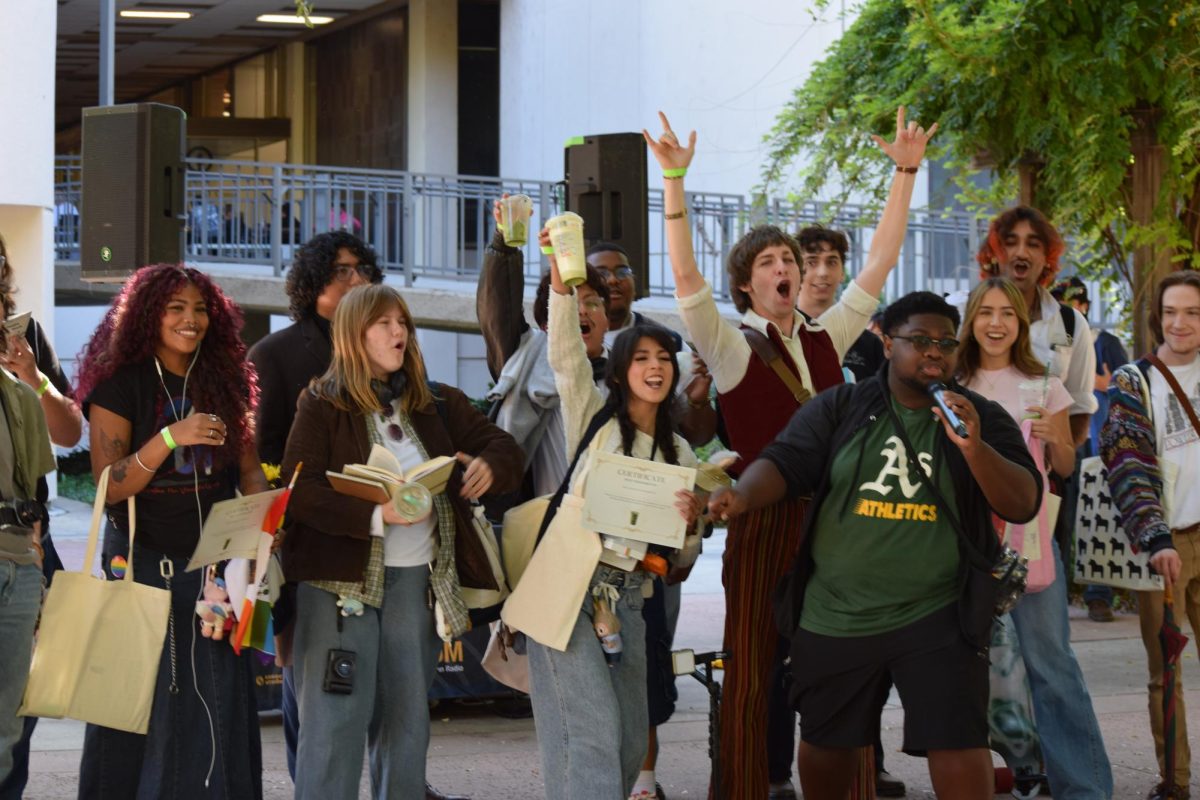California State University Chancellor Mildred García sent a newsletter updating all CSU employees on the budget and the federal investigations into the CSU on Thursday, Oct. 16.
On Sept. 26, García informed CSU employees of investigations into the CSU by the Equal Employment Opportunity Commission and the United States Department of Education’s Office of Civil Rights.
García’s newsletter said that there has been little movement on the investigations due to the federal government shutdown. The newsletter also explained that the CSU would be taking a one-time, zero-interest loan of $144 million from California’s state budget, an offer meant to mediate the budget cuts that deferred cutting $144 million of CSU funding until 2026-27. The CSU will have to repay this loan by July 1, 2026.
The money will support a single payment to CSU employees once an agreement is made on how to allocate the funds. The CSU’s budget update FAQ shared that it chose to use the money on a one-time bonus for employees because it was a more financially responsible decision than other investments that would require ongoing costs.
García and Chancellor’s Office Director of Media Relations and Public Affairs Amy Bentley-Smith clarified that the one-time loan would not create an ongoing expense for the CSU. While the CSU would be in debt to the state, it would not be increasing this debt with future spending.
The CSU has not decided how it will repay this debt, according to Bentley-Smith.
RELATED: Legislature delays $144 million CSU cut, Sac State budget deficit is reduced
The California Faculty Association urged the CSU to accept this loan when it was first presented to the CSU in September. According to CFA’s Associate Vice President Elaine Bernal, the CFA feels this is an unstable solution to the CSU’s budget issues.
“Ultimately the goal is to see it used to restore programs that were cut and bring back staff and faculty positions that were lost,” Bernal said. “We’re looking for something more sustainable, ways for management to come work with us to restructure adequate pay raises for staff and faculty so that we can support our students.”
Bernal said that the CFA is ready and willing to work with management to create pay raises without increasing tuition or downsizing programs for staff and students. They said that the biggest hurdle is a lack of transparency from the Chancellor’s Office. Bernal said that they were concerned with the lack of details that the public had access to about the terms of the loan.
“We need to see those loan terms,” Bernal said. “They know what they have signed on to and have continuously left CFA in the dark.”
Currently, the exact terms of the loan have not been disclosed to the CFA or to the general public. Bernal said that, as a publicly-funded system, the CSU owed the public a greater deal of transparency in this matter.
García’s newsletter also clarified the details of EEOC’s investigation into the CSU. The EEOC received antisemitism complaints concerning multiple campuses, like Cal State LA. The EEOC began investigating the matter within Cal State LA in January, leading to a subpoena for the personal contact information of Cal State LA faculty to conduct the investigation.
Separate complaints of antisemitism and a hostile environment were filed against the entire CSU on Sept. 23. García announced the systemwide investigations on Sept. 26.
RELATED: CFA sues CSU over federal subpoena for employee contact information
The newsletter specified that the CSU was fully cooperating with federal investigations, refuting reports that the CSU was fully complying.
“As we all know, ‘fully complying’ can be interpreted as not defending one’s actions or giving up, i.e. ‘capitulating,’” García said in the newsletter. “The CSU is fully cooperating in these matters. In other words, we are being transparent, collaborative and professional, while also standing firm in our values and in defense of our lawful actions.”
Bentley-Smith declined to comment on what specific actions taken by the CSU that García considers cooperation rather than compliance.
The CFA criticized the CSU’s response to the EEOC subpoena, suing the CSU on Oct. 10 for allegedly violating California’s Information Practices Act. CFA Los Angeles Chapter President Akhila Ananth said that the investigation and subpoena have made faculty scared about teaching their regular curriculum.
“This is a very unusual practice for the EEOC by all means,” Ananth said. “It is absolutely reflective of the current moment where complaints, however legitimate, are being used as a Trojan horse for the federal government to implement Trump’s compact for higher education,” Ananth said.
President Donald Trump has been vocal about his efforts to end diversity, equity and inclusion initiatives on college campuses. Trump recently offered the Compact for Academic Excellence in Higher Education to nine universities, which would secure them funding in exchange for curbing DEI initiatives and removing gender neutral bathrooms.
CFA Los Angeles held information sessions for faculty on Oct. 2 and 6. According to Ananth, other employees and labor unions came to the sessions to learn about the investigations and how they impacted their privacy.
“It’s part of the federal government’s assault on higher education, and we’re just one piece of that,” Ananth said. “The lawsuit was filed to protect other campuses from the sharing of personal information because of the way Cal State LA complied kind of quickly.”
Sacramento State has not commented on the investigations and does not yet know what impact the loan will have on the university.
This is a developing story and will be updated when more information becomes available.
Additional reporting by Aaron Smith.




























































































































